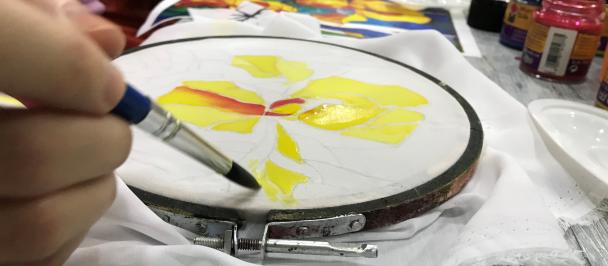Photo: Logan Isbell
Baku, 31 October 2018 – Bringing together over 100 participants from the government, the private sector, academia and international development organisations, today’s conference on the recognition of informally acquired skills and competences is the first-of-its-kind attempt in Azerbaijan to acknowledge and certify prior learning modalities outside of formal school systems, through which people gain experience in any given field.
In many countries around the world governments create opportunities for people who do not have a formal university degree in a specific field of practice to actively participate in the labour force by enabling a system, which assesses individual skills and knowledge acquired through informal learning and in different learning settings and contexts. This practice of validation in the education system is commonly referred to as the recognition of prior learning, albeit the terms used to describe this practice vary from country to country. Assessments of prior skills and competencies are made in a number of ways, usually by designated subject-matter experts in a chosen field of study, or through evidence-based assessment of individual portfolios, just to name a few.
In Azerbaijan, the need for the establishment of the prior learning validation system arose since the adoption of the ‘Action Plan on the Implementation of the National Strategy for the Development of Education in the Republic of Azerbaijan’ in 2015, which envisioned the introduction of a new system, nationwide, for the recognition of competencies acquired through non-formal and informal learning. Coupled with another flagship policy act, the ‘Strategic Roadmap for Vocational Education and Training Sector in the Republic of Azerbaijan’, the Action Plan sets the demand for investing in Azerbaijan’s human capital by securing a new recognition and qualification system for the validation of prior learning and training.
To support the Government in these efforts, the EU and UNDP are implementing the grant programme on Modernising Vocational Education and Training (VET) Centres in Azerbaijan and, as part of this programme, have launched a new project to support the establishment of Regional Industrial VET Competence Centre in Ganja earlier this year. Set to enhance the quality, equality and inclusion in education as well as to ensure the adherence of the national vocational education and training system to European standards and best practices, the project also supports a pioneering effort to establish and pilot brand new mechanisms for recognition of prior learning in the Ganja VET Competence Centre. In pursuing this inaugural platform in Azerbaijan, the EU and UNDP are working in close cooperation with the Ministry of Education, the Ministry of Labour and Social Protection of the Population and the State Agency on Vocational Education.
This joint initiative will help design the first ever methodological guidelines in Azerbaijan to support the implementation of Validation of Non-Formal and Informal Learning (VNFIL). This collective effort seeks to develop key requirements for the accreditation of VNFIL, assessment processes and procedures, as well as monitoring and quality assurance criteria for the VNFIL processes. The project will also support the Government of Azerbaijan in identifying the most relevant and empirically proven international assessment protocols, which acknowledge the evidence of prior learning. The project will closely collaborate with a designated Certification Centre, which the Government of Azerbaijan foresees to establish in the near future. The new establishment will be tasked specifically to execute the prior learning validation processes.
The concept of quality education and recognition of prior learning capabilities is also central to the 2030 Agenda for Sustainable Development and is one of the 17 Sustainable Development Goals, adopted by the UN Member-States during the historic UN General Assembly in 2015. Specifically targeting inclusive and equitable education, Goal 4: Quality Education promotes lifelong learning experiences for all and acknowledges the importance of alternative study paths as a critical step in enabling greater employment opportunities in inclusive societies.
Contact information:
For questions, please contact Arzu Jafarli, Communications and External Relations Analyst for UNDP in Azerbaijan at arzu.jafarli@undp.org

 Locations
Locations

